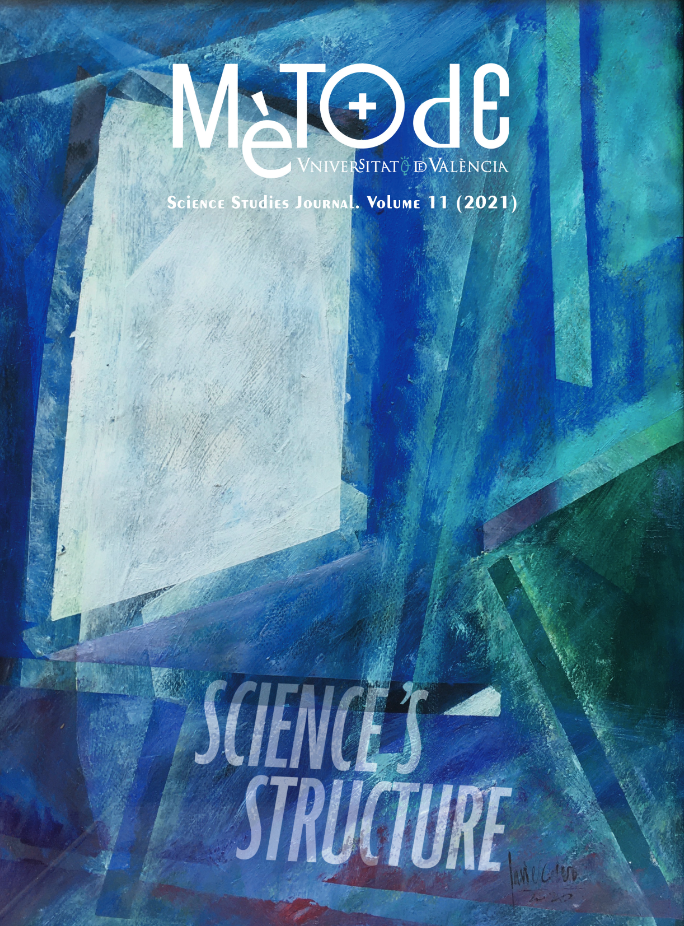Beyond global warming: Stressed oceans, globe-wide in the Anthropocene
DOI:
https://doi.org/10.7203/metode.11.16830Keywords:
Anthropocene, warming, acidification, deoxygenation, global change Abstract
Abstract
The footprint of human activities on the planet is so profound that many scientists are already suggesting that we have entered a new geological era, the Anthropocene. From among these activities, those that are accompanied by large emissions of carbon dioxide (CO2) affect our entire planet and, especially, the oceans. Besides becoming warmer, the oceans are also growing progressively more acidic and less oxygenated. In this article we discuss the extent of these global stresses on the oceans after contextualising the disproportionate anthropogenic increase in CO2 and examining how it is distributed. We conclude with a discussion of mitigation possibilities that use the oceans themselves, stressing the urgent need to tackle the problem, especially during this present decade.
 Downloads
Downloads
 References
References
Alley, R. B. (2014). The two-mile time machine: Ice cores, abrupt climate change, and our future (Updated Edition). Princeton University Press.
Delmas, R. J., Ascencio, J.-M., & Legrand, M. (1980). Polar ice evidence that atmospheric CO2 20,000 yr BP was 50 % of present. Nature, 284, 155–157. https://doi.org/10.1038/284155a0
Friedlingstein, P., Jones, M. W., O’Sullivan, M., Andrew, R. M., Hauck, J., Peters, G. P., Peters, W., Pongratz, J., Sitch, S., Le Quéré, C., Bakker, D. C. E., Canadell, J. G., Ciais, P., Jackson, R. B., Anthoni, P., Barbero, L., Bastos, A., Bastrikov, V., Becker, M., … Zaehle, S. (2019). Global carbon budget 2019. Earth System Science Data, 11, 1783–1838. https://doi.org/10.5194/essd-11-1783-2019
Fuss, S., Canadell, J. G., Peters, G. P., Tavoni, M., Andrew, R. M., Ciais, P., Jackson, R. B., Jones, C. D., Kraxner, F., Nakicenovic, N., Le Quéré, C., Raupach, M. R., Sharifi, A., Smith, P., & Yamagata, Y. (2014). Betting on negative emissions. Nature Climate Change, 4, 850–853. https://doi.org/10.1038/nclimate2392
GBRMPA. (2017). Final report: 2016 coral bleaching event on the Great Barrier Reef. GBRMPA (Great Barrier Reef Marine Park Authority). http://elibrary.gbrmpa.gov.au/jspui/bitstream/11017/3206/1/Final-report-2016-coral-bleaching-GBR.pdf
Global Carbon Project. (2019). Global carbon budget 2019. https://www.globalcarbonproject.org/carbonbudget/19/files/GCP_CarbonBudget_2019.pdf
Gruber, N. (2011). Warming up, turning sour, losing breath: Ocean biogeochemistry under global change. Philosophical Transactions of the Royal Society A: Mathematical, Physical and Engineering Sciences, 369(1943), 1980–1996. https://doi.org/10.1098/rsta.2011.0003
Hoegh-Guldberg, O. (Coord.). (2019). The ocean as a solution to climate change: Five opportunities for action. World Resources Institute. https://www.ourdynamicplanet.com/wp-content/uploads/2019/09/HLP_Ocean_Solution_Climate_Change.pdf
Höhne, N., den Elzen, M., Rogelj, J., Metz, B., Fransen, T., Kuramochi, T., Olhoff, A., Alcamo, J., Winkler, H., Fu, S., Schaeffer, M., Schaeffer, R., Peters, G. P., Maxwell, S., & Dubash, N. K. (2020). Emissions: World has four times the work or one-third of the time. Nature, 579, 25–28. https://doi.org/10.1038/d41586-020-00571-x
IPCC. (2018). Global Warming of 1.5 °C. An IPCC Special Report on the impacts of global warming of 1.5 ℃ above pre-industrial levels and related global greenhouse gas emission pathways, in the context of strengthening the global response to the threat of climate change, sustainable development, and efforts to eradicate poverty. V. Masson-Delmotte, P. Zhai, H.-O. Pörtner, D. Roberts, J. Skea, P.R. Shukla, ... T. Waterfield (Eds.). IPCC. https://www.ipcc.ch/site/assets/uploads/sites/2/2019/06/SR15_Full_Report_High_Res.pdf
IPCC. (2019). IPCC special report on the ocean and cryosphere in a changing climate. H.-O. Pörtner, D. C. Roberts, V. Masson-Delmotte, P. Zhai, M. Tignor, E. Poloczanska, ... N. M. Weyer (Eds.). https://www.ipcc.ch/site/assets/uploads/sites/3/2019/12/SROCC_FullReport_FINAL.pdf
Lüthi, D., Le Floch, M., Bereiter, B., Blunier, T., Barnola, J.-M., Siegenthaler, U., Raynaud, D., Jouzel, J., Fischer, H., Kawamura, K., & Stocker, T. F. (2008). High-resolution carbon dioxide concentration record 650,000-800,000 years before present. Nature, 453, 379–382. https://doi.org/10.1038/nature06949
Machado, L., Magnusson, M., Paul, N. A., Kinley, R., de Nys, R., & Tomkins, N. (2016). Dose-response effects of Asparagopsis taxiformis and Oedogonium sp. on in vitro fermentation and methane production. Journal of Applied Phycology, 28, 1443–1452. https://doi.org/10.1007/s10811-015-0639-9
Mcleod, E., Chmura, G. L., Bouillon, S., Salm, R., Björk, M., Duarte, C. M., Lovelock, C. E., Schlesinger, W. H., & Silliman, B. R. (2011). A blueprint for blue carbon: Toward an improved understanding of the role of vegetated coastal habitats in sequestering CO2. Frontiers in Ecology and the Environment, 9(10), 552–560. https://doi.org/10.1890/110004
Pelejero, C., Calvo, E., & Hoegh-Guldberg, O. (2010). Paleo-perspectives on ocean acidification. Trends in Ecology & Evolution, 25(6), 332–344. https://doi.org/10.1016/j.tree.2010.02.002
Schmidtko, S., Stramma, L., & Visbeck, M. (2017). Decline in global oceanic oxygen content during the past five decades. Nature, 542, 335–339. https://doi.org/10.1038/nature21399
United Nations Environment Programme. (2019). Emissions gap report 2019. UNEP.
Yan, Y., Bender, M. L., Brook, E. J., Clifford, H. M., Kemeny, P. C., Kurbatov, A. V., Mackay, S., Mayewski, P. A., Ng, J., Severinghaus, J. P., & Higgins, J. A. (2019). Two-million-year-old snapshots of atmospheric gases from Antarctic ice. Nature, 574, 663–666. https://doi.org/10.1038/s41586-019-1692-3
Downloads
Published
How to Cite
-
Abstract974
-
PDF441
Issue
Section
License
Copyright (c) 2023 CC BY SA

This work is licensed under a Creative Commons Attribution-ShareAlike 4.0 International License.
![]()
All the documents in the OJS platform are open access and property of their respective authors.
Authors publishing in the journal agree to the following terms:
- Authors keep the rights and guarantee Metode Science Studies Journal the right to be the first publication of the document, licensed under a Creative Commons Attribution-NonCommercial-NoDerivatives 4.0 International License that allows others to share the work with an acknowledgement of authorship and publication in the journal.
- Authors are allowed and encouraged to spread their work through electronic means using personal or institutional websites (institutional open archives, personal websites or professional and academic networks profiles) once the text has been published.





